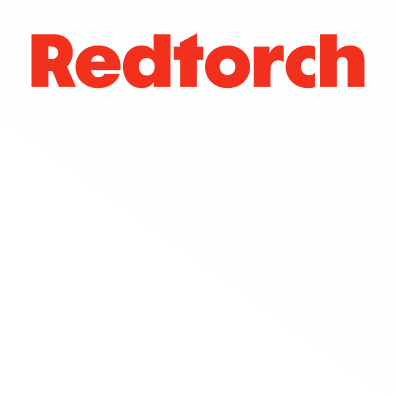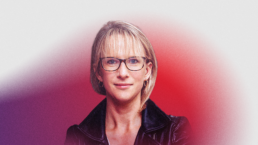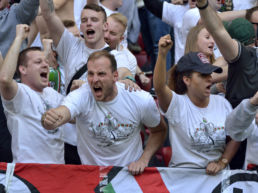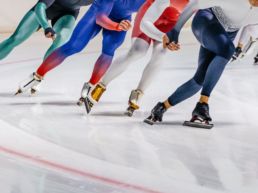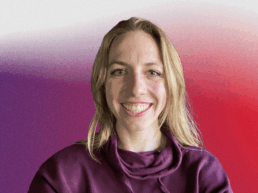Naomi Mellor’s journey into sport started in the most unexpected of places – a veterinary clinic. Now a prominent voice in the world of horse racing, she’s using her platform to elevate women in sport, tackle industry taboos and pave the way for greater inclusivity in traditionally male-dominated fields.
From Vet School to the Racetrack
Naomi’s path to sport began with a leap of faith. ‘Like a lot of vets, I wanted to be a vet from a very early age,’ she says. ‘The family myth is that I held a lamb when I was about four and said, ‘I want to be a vet!’’
After vet school in Edinburgh, Naomi’s career took an unexpected turn. ‘I had no background in horses and neither of my parents were involved with racing,’ she says. ‘But somehow, I found myself on the other side of the world, working in horse racing in Australia. It was a job I took over the phone without knowing a single person there.’
Now we’re expanding into other areas such as equipment design and how it impacts women’s safety and performance.
Navigating the Racing Industry
Though she’s carved out a niche in the racing world, Naomi knows how insular it can feel for outsiders. ‘There’s this air of exclusivity around horses – that you need to be born into it,’ she says. ‘But for me, widening the scope of horseracing to those who haven’t had access before has always been key.’
Naomi acknowledges that while she’s met many supportive men in the industry, there’s still work to be done. ‘I’ve put up with some appalling comments on occasion,’ she admits. ‘But I’ve also seen things change dramatically over the last five years. The British Horseracing Authority had a female CEO, Julie Harrington and a female chair, Annamarie Phelps, which is a great step forward.’
Tackling Taboos in Sport
Naomi’s work with Racing Home is all about tackling issues rarely addressed in the sports world – from the challenges of working mothers to the impact of menopause. ‘The first port of call was to study the experiences of working mothers in horse racing,’ she explains. ‘Now we’re expanding into other areas such as equipment design and how it impacts women’s safety and performance, and we’re working alongside other sports to create a wider, cross-sport impact.’
One of concerns that has been raised by women in the course of Naomi’s work is the fit of safety equipment for riding, such as body protectors. ‘Trying to get a body protector over a baby bump? Virtually impossible,’ she says. ‘These are the kinds of conversations we’re having – things that haven’t been considered because women weren’t around in the sport in large numbers before.’
Looking Ahead
For Naomi, the future of sport is about opening doors and breaking down barriers. ‘It’s about starting conversations,’ she says. ‘Whether it’s body protectors, the menopause, returning to riding after childbirth or periods, the more we talk about it, the less it’s considered taboo.’
And her advice for women starting out? ‘Don’t be afraid to ask for help,’ she says. ‘Networking can feel awkward at first, but people are more willing to help than you think. Just be clear about what you need and don’t be afraid to reach out.’
Women like Naomi are the voices changing the game – on and off the field.
Follow her socials below and stay connected with She Moves The Game as we spotlight more trailblazing women in sport.
Want to share your story or nominate someone doing amazing work in women’s sport?
Rozie Fuller
Hi, I’m Rosie. A football mad, crazy horse lady… a rare species! Spend most of my life on social media to keep up with the latest news and hottest trends.
My most memorable sporting moment is …
My first ever trip to Old Trafford to watch Manchester United play (despite the fact we lost).
I am happiest when …
Spending time outside with my horse… even in the rain!
The sports person that best represents me is …
John Whitaker – always calm and collected under pressure.
The three things at the top of my bucket list are …
1. Go on a horseback safari
2. Get a dog of my own
3. Watch England lift a major international football trophy
A quote I try to live my life by is …
“I don’t do stress… it gives you wrinkles” - Me

